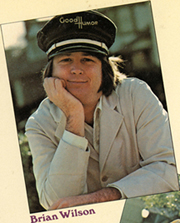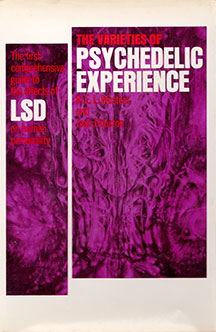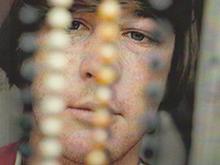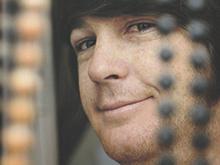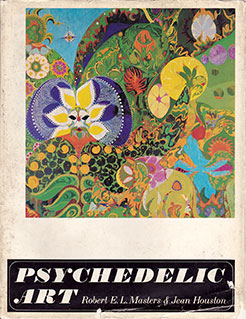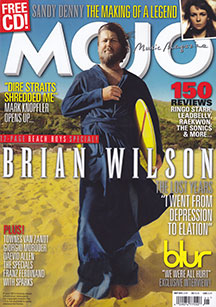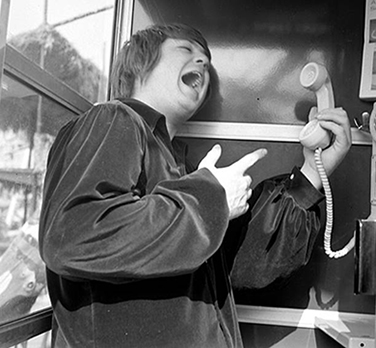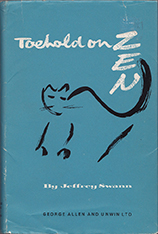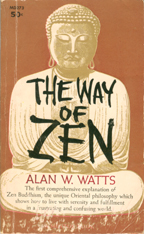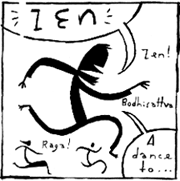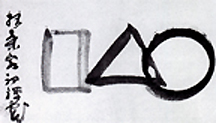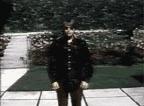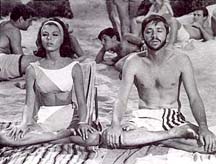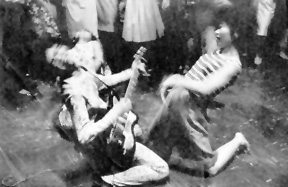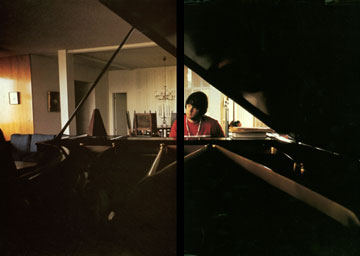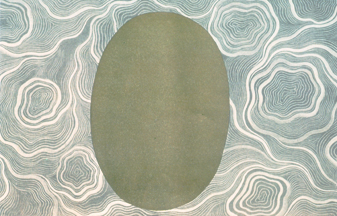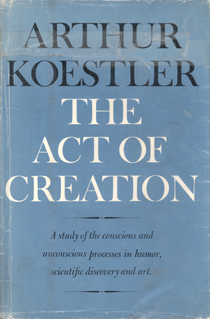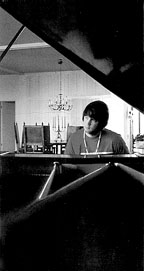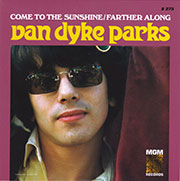"'In the same letter she urged me to read Dr. Richard Maurice Bucke's Cosmic Consciousness, declaring that it contained brilliant accounts of the actual experience of illumination. I did and was astounded to discover that my experience actually paralled the illuminations listed and explained by Dr. Bucke. In the original draft of my brochure I had described in detail my experience with "brilliant white light,"...the memory of that signal experience will always remain, for in those few seconds I received more knowledge and understanding than I had ever received in my years of reading and studying.'"
-Claude M. Bristol from The Magic Of Believing
MIRROR

"Have you tried the mirror technique of the subconscious? I'm reading a book about it---I'm fascinated by the mind and hypnosis and things like that."
-Brian Wilson from Melody Maker October 8, 1966
The above quote indicates that Brian was reading The Magic Of Believing by Claude M. Bristol (chapter six is titled The Mirror Technique for Releasing the Subconscious) and the above picture shows Brian holding the book Psycho-Cybernetics by Maxwell Maltz. Both of these titles are classified as self-help books and one could assume that Wilson used them to increase his personal happiness and achieve certain goals. But it is also possible that these books were used in order to communicate the spiritual psychedelic experience. They may very well have something to do with the SMiLE era's pictoral music, chants, repeated themes, and perhaps even "mind gangsters."
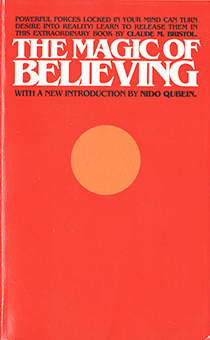
"By looking into the mirror, you increase the mental vibrations by which the force and meaning of your words will quickly penetrate to the subconscious minds of your audience."
-from The Magic Of Believing
"The subconscious mind is beyond space and time, and it is fundamentally a powerful sending and receiving station with a universal hookup whereby it can communicate with the physical, mental, psychic, and, according to many investigators, spiritual worlds, past, present, and future, as well."
-from The Magic Of Believing
"Perhaps the most effective method of bringing the subconscious into practical action is through the process of making mental pictures---using the imagination---perfecting an image of the thing or situation as you would have it exist in physical form. This is usually referred to as visualization."
-from The Magic Of Believing
"It is obvious that in all similar religions, cults, and orders there is a prescribed ritual in which the repetition of words, mystical or otherwise, plays an important part. And this brings us to the law of suggestion, through which all forces operating within its limits are capable of producing phenomenal results....It's the repetition of the same chant, the same incantations, the same affirmations that leads to belief, and once that belief becomes a deep conviction, things start to happen."
-from The Magic Of Believing
"'This is the year that was actually. It blossomed....It was a great moment, you know, because about a half year of emotions alone went into the record ("Good Vibrations"). And everyone was sort of...had it in their minds and it was um, I think it has a lot to do with repetition. I don't know. When something is around for a long time it gets really emblazoned in your mind and becomes so visual that it really starts to happen...our next record's called "Heroes And Villains."'
-Brian Wilson from the "Heroes And Villains Piano Demo" November 4, 1966
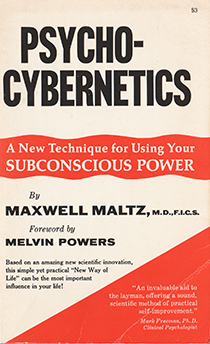
"'It is no wonder that the art of "mental picturing" has in the past sometimes been associated with "magic."
However, the new science of cybernetics gives us an insight into why mental picturing produces such amazing results, and shows that these results are not due to "magic," but the natural, normal functioning of our minds and brains.'"
-from Psycho-Cybernetics
"'Many great thinkers of all ages have believed that man's "stored information" is not limited to his own memories of past experiences, and learned facts. "There is one mind common to all individual men," said Emerson, who compared our individual minds to the inlets in an ocean of universal mind.'"
-from Psycho-Cybernetics
"'Mental pictures offer us an opportunity to "practice" new traits and attitudes, which otherwise we could not do. This is possible because again---your nervous system cannot tell the difference between an actual experience and one that is vividly imagined.'"
-from Psycho-Cybernetics
'"If you really mean business, have an intense desire, and begin to think intensely about all angles of the problem---your creative mechanism goes to work---and the "scanner" we spoke of earlier begins to scan back through stored information, or "grope" its way to an answer. It selects an idea here, a fact there, a series of former experiences, and relates them---or "ties them together" into a meaningful whole which will "fill out" the incompleted portion of your situation, complete your equation, or "solve" your problem. When this solution is served up to your consciousness---often at an unguarded moment when you are thinking of something else---or perhaps even as a dream while your consciousness is asleep---something "clicks" and you at once "recognize" this is the answer you have been searching for."'
-from Psycho-Cybernetics
The Magic Of Believing, Psycho-Cybernetics, and The Act Of Creation all deal with unconscious processes, pictoral thinking, and problem solving.
"Yeah, I used to see notes, I used to visualize notes on paper in my mind and after I visualized it I wrote it down as I saw it in my mind."
-Brian Wilson
"Thinking in pictures dominates the manifestations of the unconscious---the dream, the hypnogogic half-dream, the psychotic's hallucinations, the artist's 'vision'."
~ Arthur Koestler from The Act of Creation
"The features on which the beam (of focal awareness) alights are images of a pictorial or verbal nature, memories in abstracted, conceptualized, or distorted shape; in a word, they are past experiences internalized. The inner landscape may be regarded as a kind of private, miniature model---or caricature---of the world in the subject's brain-mind."
~ Arthur Koestler from The Act of Creation
"Thus in some of the cases we have discussed, the solution is arrived at by a kind of 'thinking aside', a shift of attention to some feature of the situation, or an aspect of the problem, which was previously ignored, or only present on the fringes of awareness. The humorist may stumble upon it (humour) by chance; or, more likely, guided by some intuition which he is unable to define. This gives us a first intimation of unconscious processes intervening in the creative act....the bisociative act, in humour as in other branches of creativity, depends in varying degrees on assistance from fringe-conscious or unconscious processes."
~ Arthur Koestler from The Act of Creation
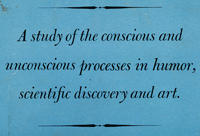
"...a very distinguished writer named Arthur Koestler. And he after a lot of careful research and study and all that, in his life, he discovered that the human mind is broken up into three areas, three categories. First is humor, second is science---which he calls discovery, and the third is art. Now, the one thing that really blew me out about that book was that the first rule of ego is humor. So in other words when people get together they’re more apt to want to be funny, you know, out of instinct and ego, than they are artistic or scientific, like intellectual, you know."
-Brian Wilson from the film I Just Wasn't Made For These Times
"The first is intended to make us laugh; the second to make us understand; the third to make us marvel. The logical pattern of the creative process is the same in all three cases...But the emotional climate is different in the three panels: the comic simile has a touch of aggressiveness; the scientist's reasoning by analogy is emotionally detached, i.e. neutral; the poetic image is sympathetic or admiring, inspired by a positive kind of emotion."
~ Arthur Koestler from The Act of Creation
"It explains that people attach their egos to their sense of humor before anything else. After I read it, I saw that trait in many people."
-Brian Wilson on The Act of Creation
"At first sight there seems to be a bewildering variety of moods involved in different types of humour....but whatever the mixture, it must contain one ingredient whose presence is indispensable: an impulse, however faint, of aggression or apprehension. I propose to call this common ingredient the aggressive-defensive or self-asserting tendency."
~ Arthur Koestler from The Act of Creation
"...when governed by the self-assertive class of emotions the ego is experienced as a self-contained whole and the ultimate value."
~ Arthur Koestler from The Act of Creation
"The key word for Brian was humor. He would see the solutions to all problems in terms of humor. If people could laugh about things or feel good about things, you wouldn't have violence. You can't have humor and violence, really. I think that's the essence of Brian. It starts with humor, happiness, love."
-David Anderle
"When we laugh...the pleasurable relief does not derive from a consummatory act which satisfies some specific need. On the contrary: laughter prevents the satisfaction of biological drives, it makes a man equally incapable of killing or copulating; it deflates anger, apprehension, and pride."
~ Arthur Koestler from The Act of Creation
"He (Brian Wilson) felt that the moment somebody laughed, that while they're laughing,
that all control was gone. They cannot control themselves.
And at that moment they can have a spiritual experience."
-Michael Vosse
"Laughter, as the cliché has it, is 'liberating', i.e. tension-relieving."
~ Arthur Koestler from The Act of Creation
"...it (laughter) could arise only in a biologially secure species with redundant emotions and intellectual autonomy. The sudden realization that one's own exitement is 'unreasonable' heralds the emergence of self-criticism, of the ability to see one's very own self from outside; and this bisociation of subjective experience with an objective frame of reference is perhaps the wittiest discovery of homo sapiens."
~ Arthur Koestler from The Act of Creation
"The less suggestive and the more implicit the joke, the more will the consumer's reactions approximate the producer's---whose mental effort he is compelled to re-create. When the witticism is transformed into epigram, and teasing to challenge, the overflow reflex for primitive emotions is no longer needed, and de-tension assumes more individualized and sophisticated forms; the roar of Homeric laughter is superseded by Archimedes's piercing cry or Kepler's holy ravings."
~ Arthur Koestler from The Act of Creation
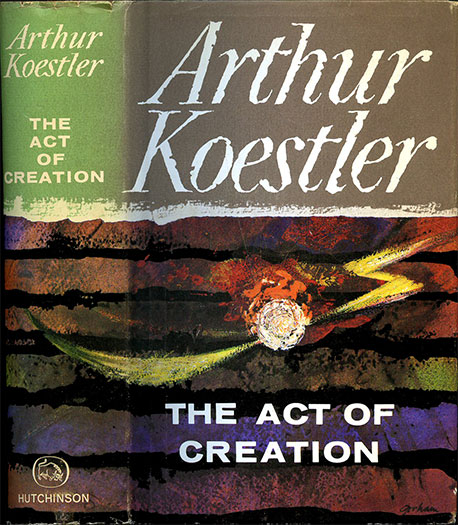
The listener must solve!
"All mythology is studded with symbols, veiled in allegory; the parables of Christ pose riddles which the audience must solve. The intention is not to obscure the message, but to make it more luminous by compelling the recipient to work it out by himself---to re-create it."
~ Arthur Koestler from The Act of Creation
"The history of science abounds with examples of discoveries greeted with howls of laughter because they seemed to be a marriage of incompatibles---until the marriage bore fruit and the alleged incompatibility of the partners turned out to derive from prejudice."
~ Arthur Koestler from The Act of Creation
"Let me now turn from the creative person's emotional reactions to those of the audience, to the 'consumer's' point of view. Whether he listens to a joke, or reads a scientific work, or visits an art gallery, he is supposed to participate in the intellectual and emotional experiences of the 'producer'---to relive or re-create them."
~ Arthur Koestler from The Act of Creation
"...the dream operates with a type of logic which is inadmissible in the waking state, and which, for precisely that reason, proved useful in critical situations where the matrices of conscious thought are blocked. Thus the illogicality and apparent naïveté of visual associations, or the indifference of the dreaming mind to convention and common sense, turned out to be of great value in forging new combinations out of seemingly incompatible contexts. All the bisociative mechanisms of the comic we found in the dream freewheeling as it were, without being harnessed to any obvious rational purpose."
~ Arthur Koestler from The Act of Creation
"He's off in his vision, on a trip. Reality is gone; he's creating it like a dream."
-Brian Wilson explaining "Surf's Up" lyrics
"In my mind, I saw a surrealist enigma with a dream-like situation."
-Frank Holmes
"And, as far as I see it, it was my opportunity to provide the proper number of syllables that gave him (Brian Wilson) the imagery that he wanted to project in his very, I say, anecdotal music---music that becomes a rapture, a dream."
-Van Dyke Parks
"I worked mainly with the metaphor and allegory used in the lyrics which were related to me by Van Dyke."
-Frank Holmes
"Van Dyke Parks had written the lyrics that were...The lyrics were so poetic and symbolic, they were abstract..."
-Brian Wilson
My plan was to avoid the obvious and find an equivalent alternate representation....I used anything that would contribute to the inherent enigmatic quality of SMiLE."
-Frank Holmes
"Manifest Destiny, Plymouth Rock, etc. were the last things on his mind when he (Brian Wilson) asked me to take a free hand in the lyrics and the album's thematic direction."
-Van Dyke Parks
"Words are essential tools for formulating and communicating thoughts, and also for putting them into storage of memory; but words can also become snares, decoys, or strait-jackets."
~ Arthur Koestler from The Act of Creation
"If they don't get the words, they'll get the music, because that's where it's really at, in the music. You can get hung up in words, you know. Maybe they work; I don't know."
-Brian Wilson
"I thought see...that one of the failures of the 'Smile' period---our working together---was the fact that the words were maybe too important or something. Or were given unnecessary importance."
-Van Dyke Parks
"The essence of discovery is that unlikely marriage of cabbages and kings---of previously unrelated frames of reference or universes of discourse---whose union will solve the previously insoluable problem. The search for the improbable partner involves long and arduous striving---but the ultimate matchmaker is the unconscious."
~ Arthur Koestler from The Act of Creation
"All the work representing the ideas in SMiLE is meant to encourage investigation and reflection of the content and to stimulate thought with the music....The intent is to challenge thinking as in a puzzle."
-Frank Holmes
"Brian made it clear to me that he wanted to do something without restraint, or apology, or explanation to the rest of the group."
-Van Dyke Parks
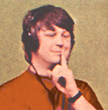
You should tell no one!
"It cannot be too strongly emphasized that you should tell no one just what the words on the cards mean (your goal) nor give anyone an inkling of what you desire. To do so may end disastrously for you. When you get a better understanding of this science, you can understand how thought vibrations, consciously or unconsciously, because of envy or some other cause, may be set up to counteract your own."
-from The Magic Of Believing
"'The truth is that when you talk about what you're going to do, you scatter your forces. You lose the close connection with the subconscious, and you will frequently find that unless you do as here directed, you will have to start all over again in your program of achievement.
"Go and tell no man" still holds true.'"
-from The Magic Of Believing
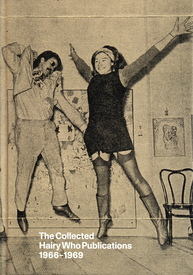
The Collected Hairy Who Publications 1966-1969
Brian Wilson had a spiritual experience while under the dream-like influence of LSD. Arthur Koestler's book The Act Of Creation asserted that similar dream-like states offer the best way to yield similar results. SMiLE's creative process incorporated Koestler's concept of 'bisociation' (associating one idea with two different contexts; necessary for humor, natural in dreams) the use of which resulted in an enigmatic irrational one-of-a-kind body of work. The project's dream-like design provided the proper setting for a spiritual experience.
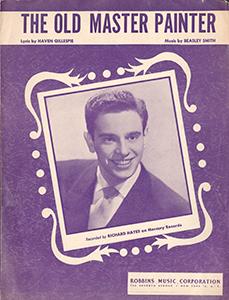
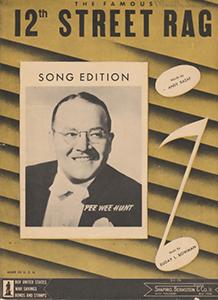
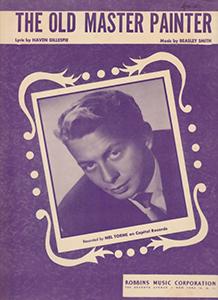
We create when we dream. It tends to be a highly visual type of creation where seemingly unrelated characters and events from one's memory form strange combinations. Logic plays absolutely no role in this process. SMiLE was created using this 'something reminds me of something else but I don't know how or why' style of creation.
Brian Wilson attempted to represent his spiritual/religious psychedelic experiences musically. A feeling of spiritual rebirth and transcendence might conjure something akin to the first time Brian heard "Rhapsody In Blue" as a child--a variation on which might yield something like the "Bicycle Rider" music. Van Dyke Parks would then attempt to represent this music and subject matter lyrically using the same unconventional associative processes. Lastly, Frank Holmes would use the same style of creation to visually represent Van Dyke's lyrics.*
Koestler's bisociative method of dream-like association allowed the incommunicable spiritual experience to be representated via the creative process. Van Dyke Parks' and Frank Holmes' work for SMiLE centered mainly on the creative aspect of the project. Brian Wilson appears to have additionally been invested in the possible real world consequences of releasing an experimental psychedelic work such as SMiLE. Reading The Act Of Creation, The Magic Of Believing, and Psycho-Cybernetics likely gave Brian the impression that virtually anything could be communicated using the proper methods.
"After such an experience there is likely to be a powerful wish to communicate what has happened. Some of the psychedic art may be thus motivated."'
~Masters & Houston from Psychedelic Art (1968)
NEVER BE -

Bill Tobelman
william.tobelman@snet.net

*Note the vast amount of symbolic meaning, in a sort of Freudian dream analysis sense, inherent in the creation of SMiLE. SMiLE is full of meaning. By some strange coincidence an acid flashback "riddle" found in Brian's ghostwritten biography is similarly "full of meaning."
"As the buzz subsided into a manageable burned-out sensation,
I remembered Loren once explaining that hallucinations were comparable to Zen riddles,
mysteries full of meaning.
What had mine meant?
I had driven to the bookstore, looking for what? Inspiration? Instead I'd seen books melting, unable to grasp the knowledge contained in them.
If that was a riddle,
I wanted to know the solution."
-Brian Wilson from Wouldn't It Be Nice (1991)
The phrase "Heroes and Villains" could possibly represent the contents of books, and be an indirect reference to the above bookstore experience. Brian's widespread labelling of SMiLE music under the heading "Heroes And Villains" could be an attempt to present something similar to his bookstore hallucination in album form.

"Manifest Destiny, Plymouth Rock, etc. were the last things on his mind when he (Brian Wilson) asked me to take a free hand in the lyrics and the album's thematic direction."
-Van Dyke Parks
"There was an obsession to reject anything that smacked patriotism. The Beach Boys vibe was, to me, an ideal platform to talk about what we knew."
-Van Dyke Parks
"And, as far as I see it, it was my opportunity to provide the proper number of syllables that gave him (Brian Wilson) the imagery that he wanted to project in his very, I say, anecdotal music --- music that becomes a rapture, a dream."
-Van Dyke Parks
SMiLE in a Nutshell
SMiLE is a dream ripe for analysis and discovery. There is a deeper level of meaning that lies behind what is presented---a spirituual experience.
There are two levels at work in SMiLE.
There is the level we can see and hear---it is essentially a dream. It was created using personal memory, dream-logic, and intuition to conjure music, lyrics, and images
that represent the hidden spiritual experience in an non-logical indirect way.
Humor, as Koestler explains, similarly employs two 'incompatable frames of reference.'
To 'get' humor is to discover the second frame of reference.
To discover SMiLE's second frame of reference is to
access the spiritual experience.
What I Imagine Happened
In a nature setting Brian Wilson took a smaller dose of LSD and contemplated the mystery he was presented during a bookstore acid flashback. He recalled his earlier trip related events. Revisiting the 'fire' trip where he imagined himself dying likely coincided with an ego death transformation. Being surrounded by water, in a variety of forms, turned Brian's negative into a positive, death into rebirth: a spiritual experience (Just a fun note, the movie The Trip (1967) includes a death by fire and a rescue from a swimming pool as part of a trip had by Peter Fonda).
"I wanted to move ahead in sounds and moods...I wanted to write a song containing more than one level."
-Brian Wilson
IN THE PINK
Another book that Brian Wilson was likely reading in the mid 60s was Alan Watts' The Joyous Cosmology. In the early 2000s Brian secured a copy of this book just prior to adding some SMiLE numbers to his touring band's repertoire.
The Joyous Cosmology is a document of several LSD trip experiences presented as one. Watts encounters sights and sounds on a country estate setting using psychedelics to divine spiritual meaning, sometimes multilayered, from his relatively ordinary surroundings. If such meaning were attainable using typical reasoning and reflection there would be no need for the acid. But chemically induced spiritual insight is not logical but rather subjective and the product of creative intuition.
SMiLE is similarly put together using associative thought. Brian's spiritual experiences are represented non-logically in the form of a waking dream. The dream is full of subjective meaning and significance.
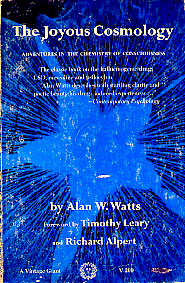
"Consciousness-changing drugs are popularly associated with the evocation of bizarre and fantastic images, but in my own experience this happens only with closed eyes. Otherwise, it is simply that the natural world is endowed with a richness of grace, color, significance, and, sometimes, humor, for which our adjectives are insufficient. The speed of thought and association is increased so astonishingly that it is hard for words to keep pace with the flood of ideas that come to mind."
~ Alan Watts from The Joyous Cosmology.
Are the following examples of associative thought?
"Seeing a strange-looking man turn a corner, I convinced myself he was God..."
-Brian Wilson from Wouldn't It Be Nice (1991)
"I heard the word---of God; Wonderful thing---the joy of enlightenment, of seeing God. And what is it? A children's song!"
-Brian Wilson explaining "Surf's Up" lyrics in 1966
"...the song of God, hiding His love from us, but always letting us find Him again, like a mother singing to her children."
-Brian Wilson explaining "Surf's Up" lyrics in 1966
"That's symbolism right? God cannot be conceived of, so therefore we give him a literal meaning,
and he's in the sky so that people can understand what is being said."
-Brian on "Rio Grande" in 1988
"Some people will use a symbolism of the relationship of God to the universe, wherein God is a brilliant light, only somehow veiled, hiding underneath all these forms as you look around you. So far so good. But the truth is funnier than that. It is that you are looking right at the brilliant light now that the experience you are having that you call ordinary everyday consciousness--pretending you're not it--that experience is exactly the same thing as 'it.' There's no difference at all.
And when you find that out, you laugh yourself silly. That's the great discovery."
~ Alan Watts from What It Is To See.
"No discovery has ever been made by logical deduction..."
~ Arthur Koestler from The Act of Creation
